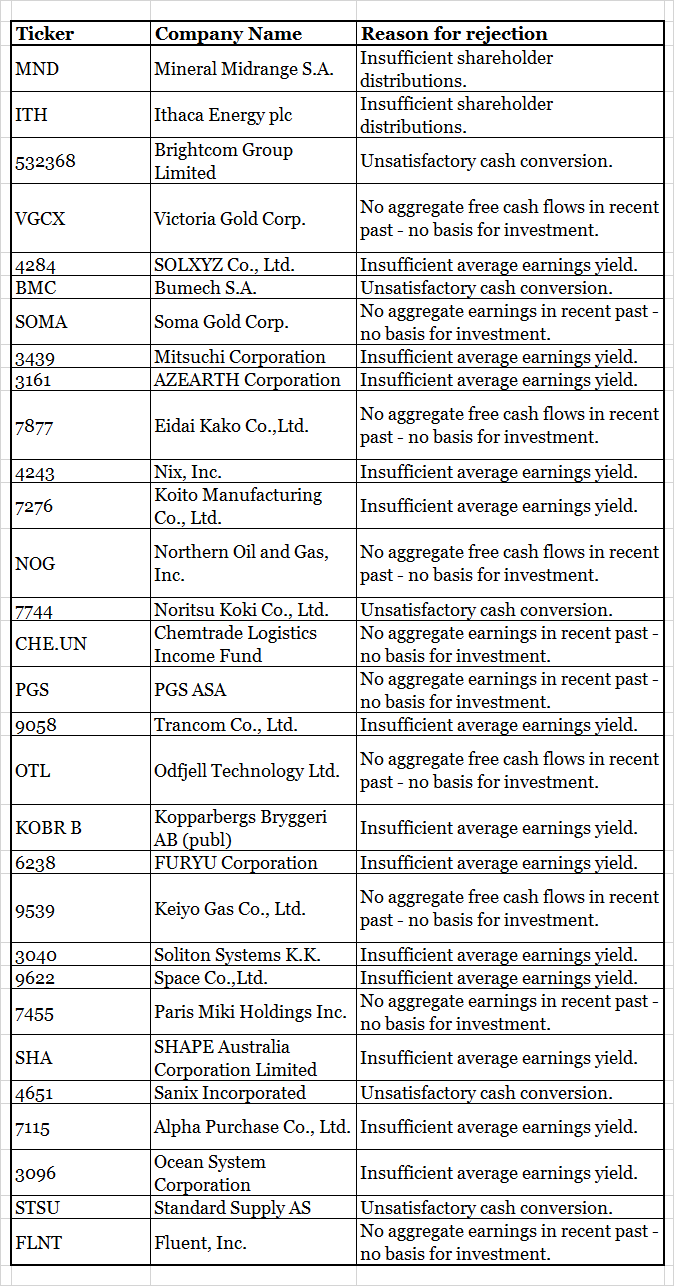Newsletter - March 2nd, 2024
- AuditorInvestor

- Mar 2, 2024
- 3 min read
Updated: May 1, 2024
Dear Reader,
Attached is our latest list of stocks passing value screens (low P/E, low EV/EBITDA, etc.), which don’t meet our investment criteria - and our reasoning.
This may help you avoid some ‘value traps’, and stocks that aren’t sufficiently attractive compared to opportunities available today.
For reports of stocks that pass our quantitative and qualitative standards:
